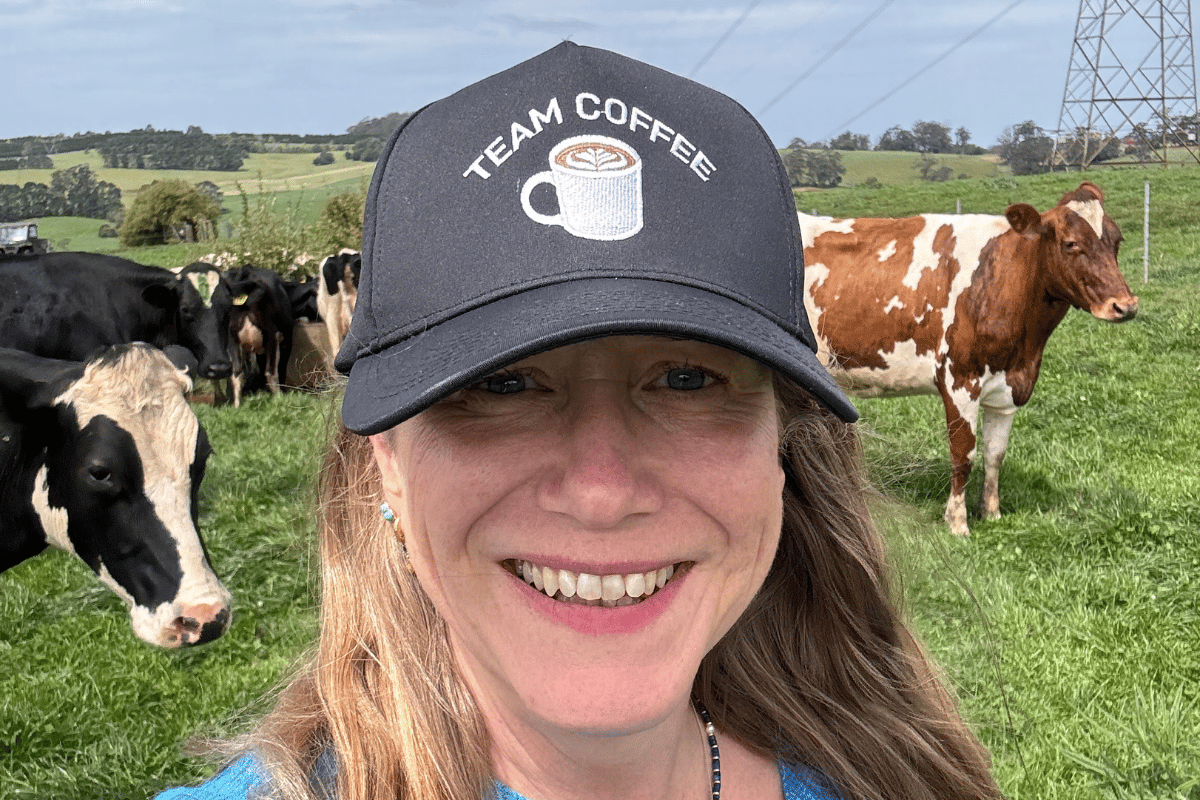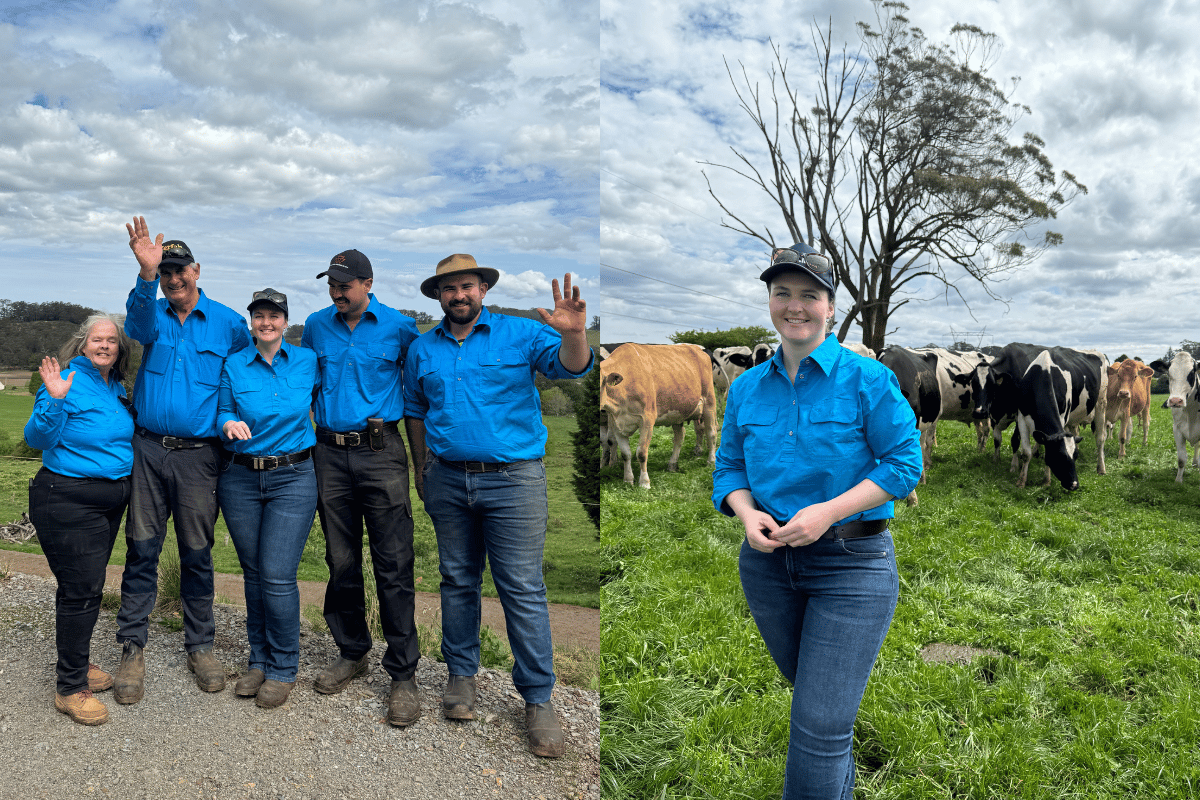

It was awkward. They were wearing blue. I was wearing blue. But they are a family of dairy farmers, dressed in their trademark colours to show a couple of city people around their world and I am… a ring-in.
"Don't," a wise friend whispered to me before I travelled to the Southern Highlands in New South Wales to meet the Sherborne family, "pretend you know about farming just because you grow a few tomatoes".





























































































